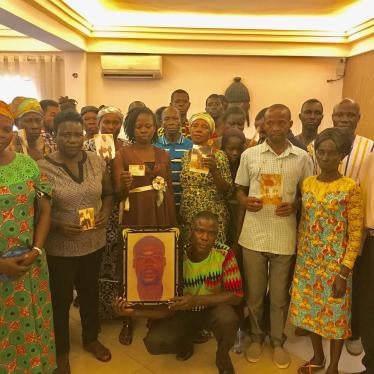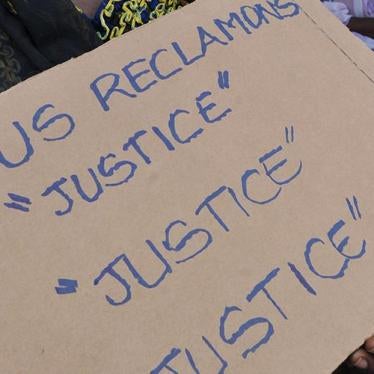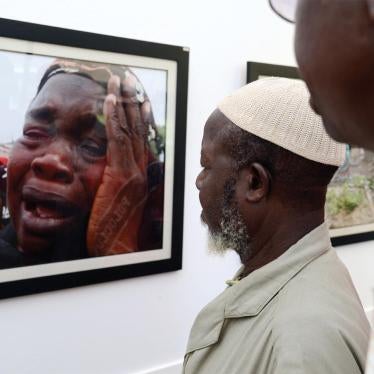Earlier this week, the International Criminal Court turned down a request by the Ivorian government to postpone its surrender to The Hague of Charles Blé Goudé, a close ally of former President Laurent Gbagbo and longtime head of a violent, pro-Gbagbo militia group. Following the devastating 2010-2011 postelection crisis, the government of President Alassane Ouattara swiftly surrendered Gbagbo to ICC custody, where he remains while the judges decide whether there is enough evidence to move to trial. But cooperation from Ivorian authorities appears less forthcoming now that they have gotten Gbagbo off their hands.
The Ivorian government has yet to formally respond to the ICC arrest warrant against Blé Goudé for four counts of crimes against humanity, even though he has been in their custody since being extradited from Ghana in January 2013. The court’s dismissal of the request for more time is not surprising. Côte d’Ivoire relied on a rather broad reading of the Rome Statute, the ICC’s founding treaty, in seeking the temporary suspension of the ICC’s arrest warrant to figure out whether it intends to prosecute Blé Goudé in Côte d’Ivoire.
Now that suspending the arrest warrant under the current circumstances is off the table, the ball is clearly in the Ivorian government’s court. The government has two choices: surrender Blé Goudé or challenge the admissibility of his case before the ICC on the grounds that he is being tried in Côte d’Ivoire for essentially the same crimes. The government is certainly familiar with the latter approach – it finally challenged the admissibility of the ICC’s case against former First Lady Simone Gbagbo, also wanted on crimes against humanity charges, nearly 20 months after the ICC warrant against her was first issued. A decision by the ICC judges is pending.
While the ICC is a court of last resort, it has rules that Abidjan is legally obligated to follow. Blé Goudé’s surrender falls squarely within them. Côte d’Ivoire has agreed to respect its ICC responsibilities time and again since Ouattara took power, most recently last year when it formally ratified the Rome treaty.
On the heels of the Gbagbo years, the Ouattara government has been working to build a reputation of re-engaging with the international community and emphasizing human rights. Fulfilling its legal obligations under the Rome Statute in the Blé Goudé case is an important step in that direction.








